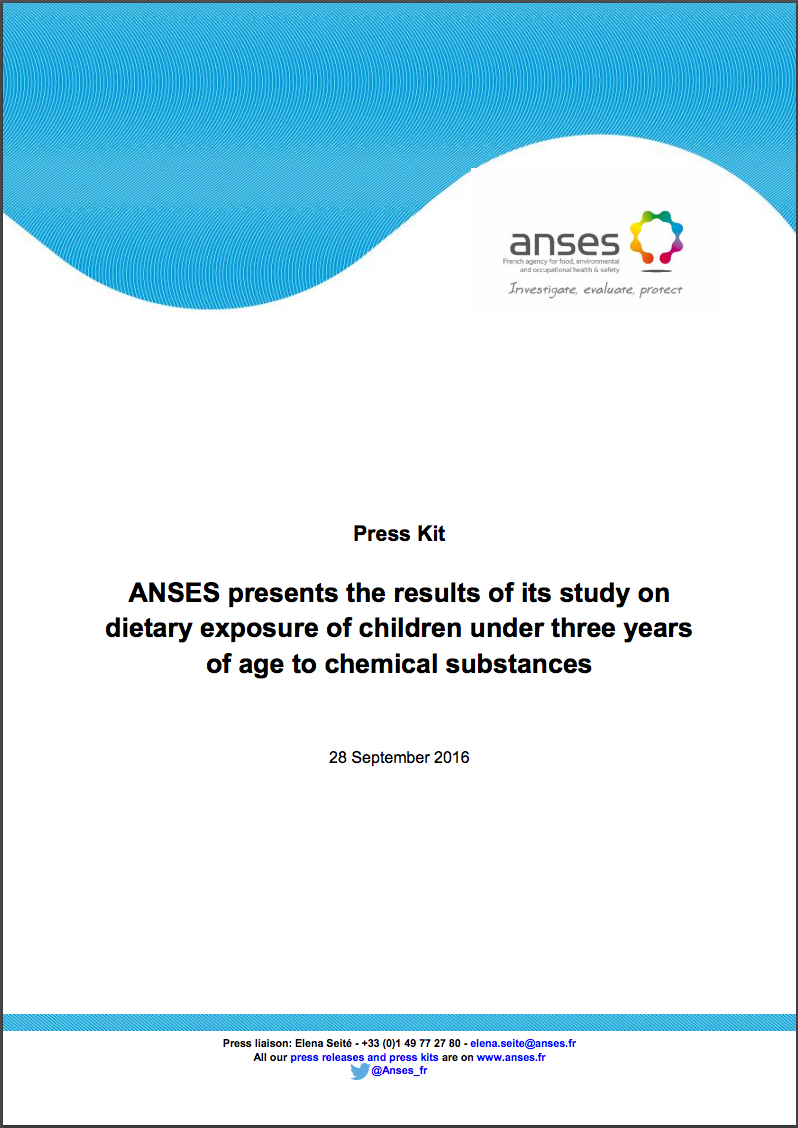Chemycal has been acquired by 3E
Learn MoreChemycal has been acquired by 3E
Learn MoreDiscover how Chemycal PRO helps you boosting your regulatory monitoring:

The French Agency for Food, Environmental and Occupational Health & Safety (ANSES) has published an initial snapshot of dietary exposure of children under three years of age to a vast number of substances. The infant total diet study (iTDS) in fact covers more than 95% of the diet of toddlers, with around 670 substances being analysed.
This study confirmed the high level of health management regarding toxicity reference values, since a risk can be ruled out for most of the substances assessed. Some points, however, deserve particular attention: among the substances or classes of substances for which a risk could not be ruled out, 16 require a reduction in exposure, including nine considered a priority (heavy metals such as arsenic, or persistent organic pollutants such as PCBs, for example). ANSES is therefore recommending measures to reduce exposure of the infant population to these substances and acquire additional knowledge for refining risk assessments.
In light of the findings of the present study, the Agency stresses the importance of following up the recommendations of the National Health and Nutrition Programme, in particular, not to introduce any foods other than infant formulas before six months and, subsequently, to vary the diet and sources of supply. In addition, the Agency reiterates that only breast milk or infant formulas can cover an infant's needs. Normal milk, regardless of the animal species that produced it, is not suited to the nutritional needs of children under one year of age.
Related links:
2013 © MyChemicalMonitoring. ALL Rights Reserved. About Us | Terms and Conditions